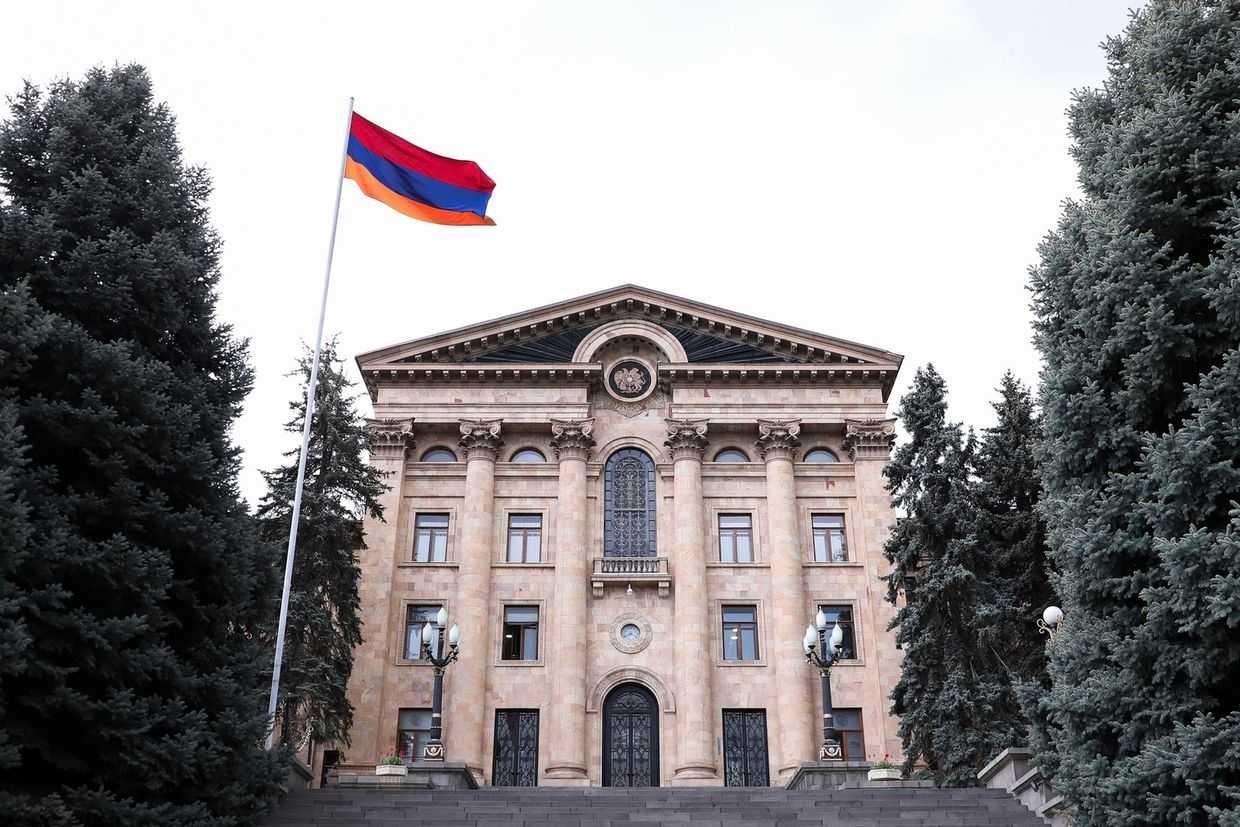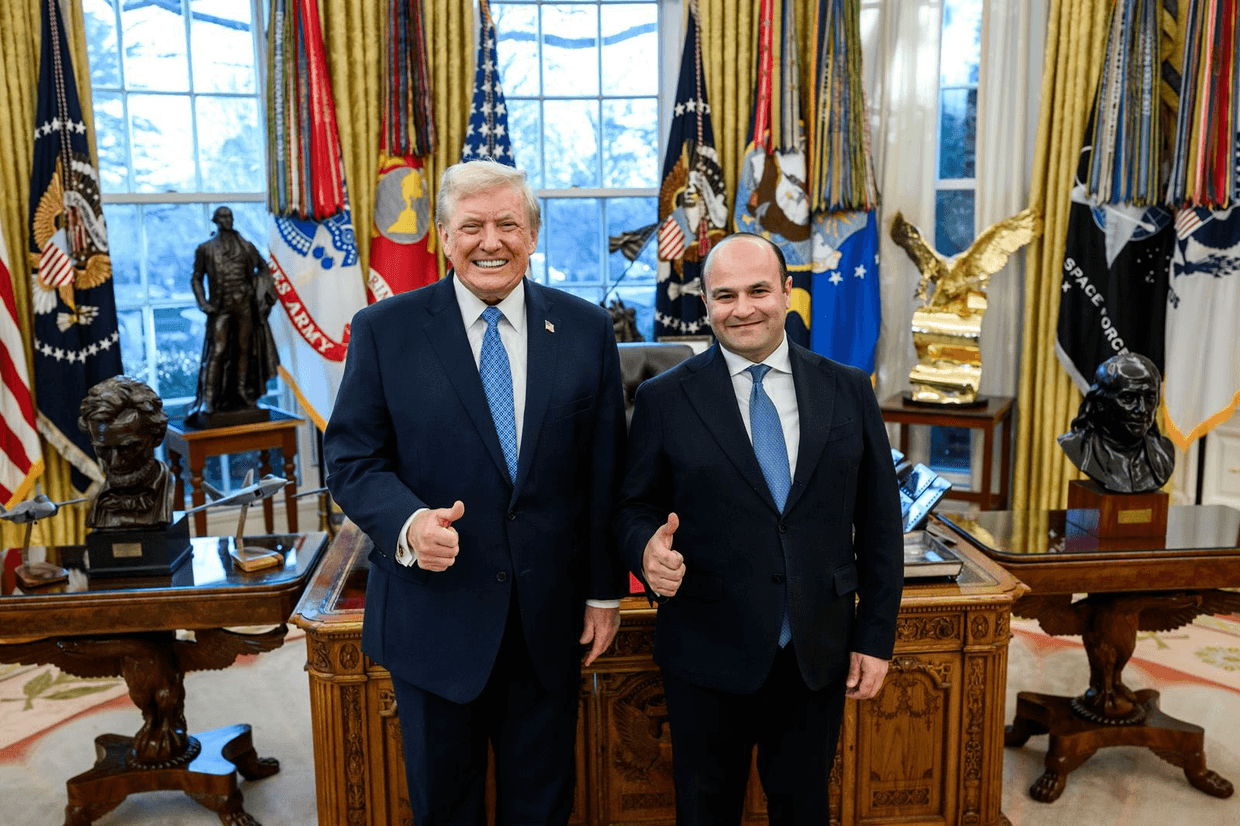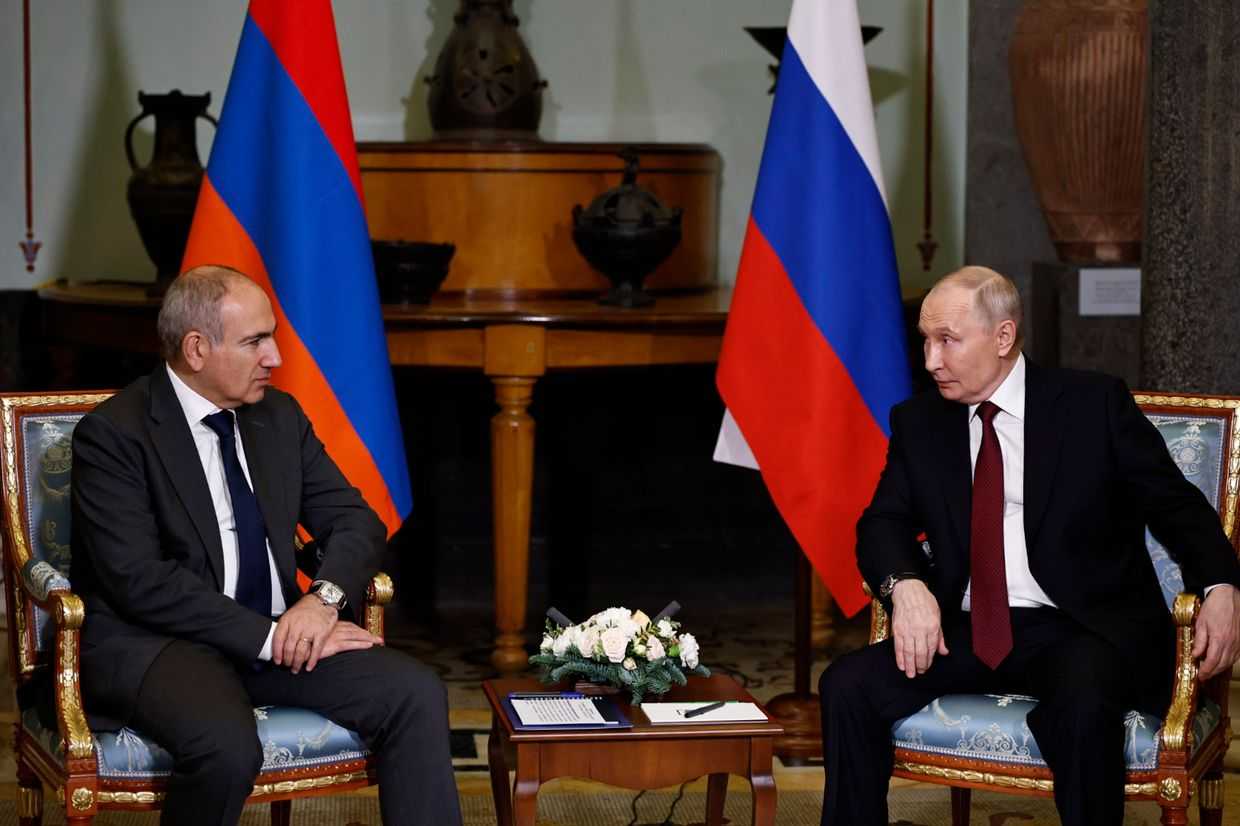
Artist and jeweller Artak Tadevosyan from Gyumri gives new life to used bullets and casings, turning them into jewellery.
‘I am an artist by trade, but I have had to earn money in many different ways: including in retail and doing home renovations. For some time I worked abroad, but then I returned to Gyumri, my hometown, where I now live with my wife and two daughters.’
‘For a long time, my wife Ayarpi and I couldn’t find a job, until she began to weave dolls and I copper wire jewellery.’
‘Once, we were walking near Gyumri not far from the Russian military base and noticed the spent cartridges. For interest’s sake, we brought several pieces home and made a ring, earrings, and a pendant out of them.’
‘Now our jewellery made of used bullets and casings is sold under the name “Ayar” [a combination of Ayarpi and Artak] in Armenia and abroad. At first, people thought they were strange, but now they are considered something unique, unusual.’
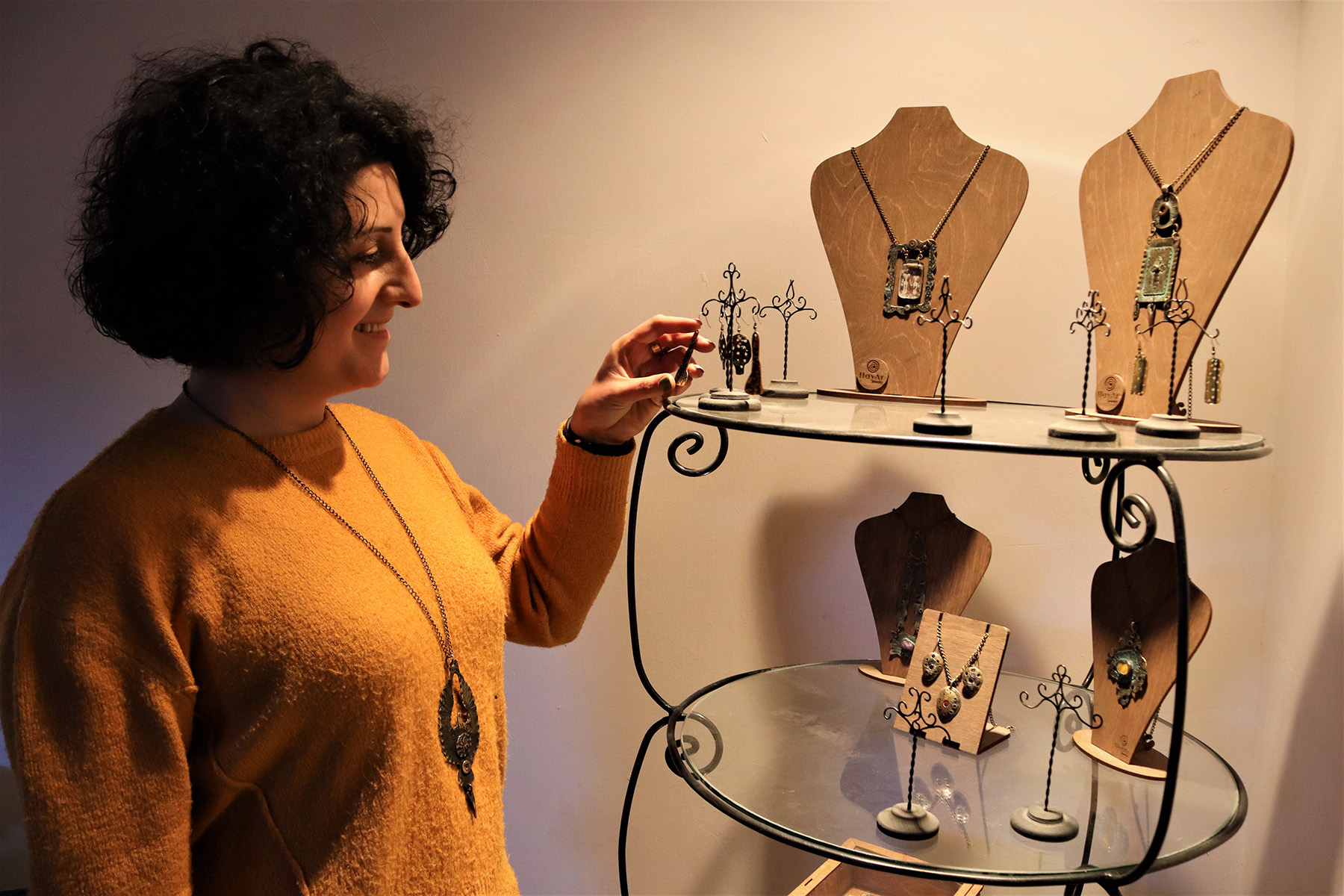
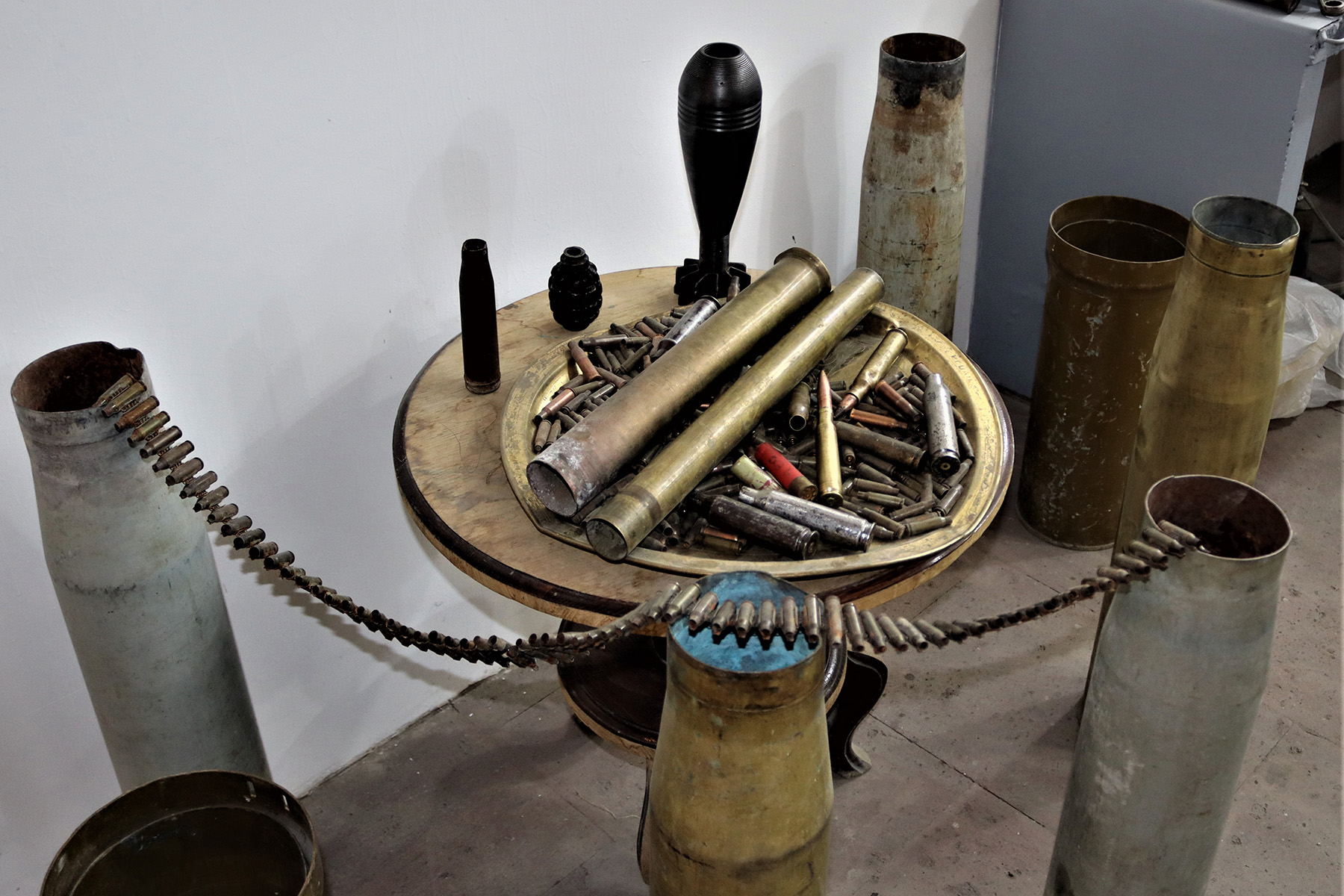
‘This is not just jewellery — but a symbol of the inner and outer world. You need to have a special attitude to wear it. There is no buyer who would not tell us that they can wear such an adornment only in a certain mood, when they need the harmony of the inner and the outer.’
‘If you try, you can spread the call to peace’
‘In my hands, a weapon has become an ornament, a work of art. [Through my work] I preached peace. Many in Armenia responded and began to wear our jewellery, including the spouse of the Prime Minister, ambassadors, deputies, heads of international organisations.’
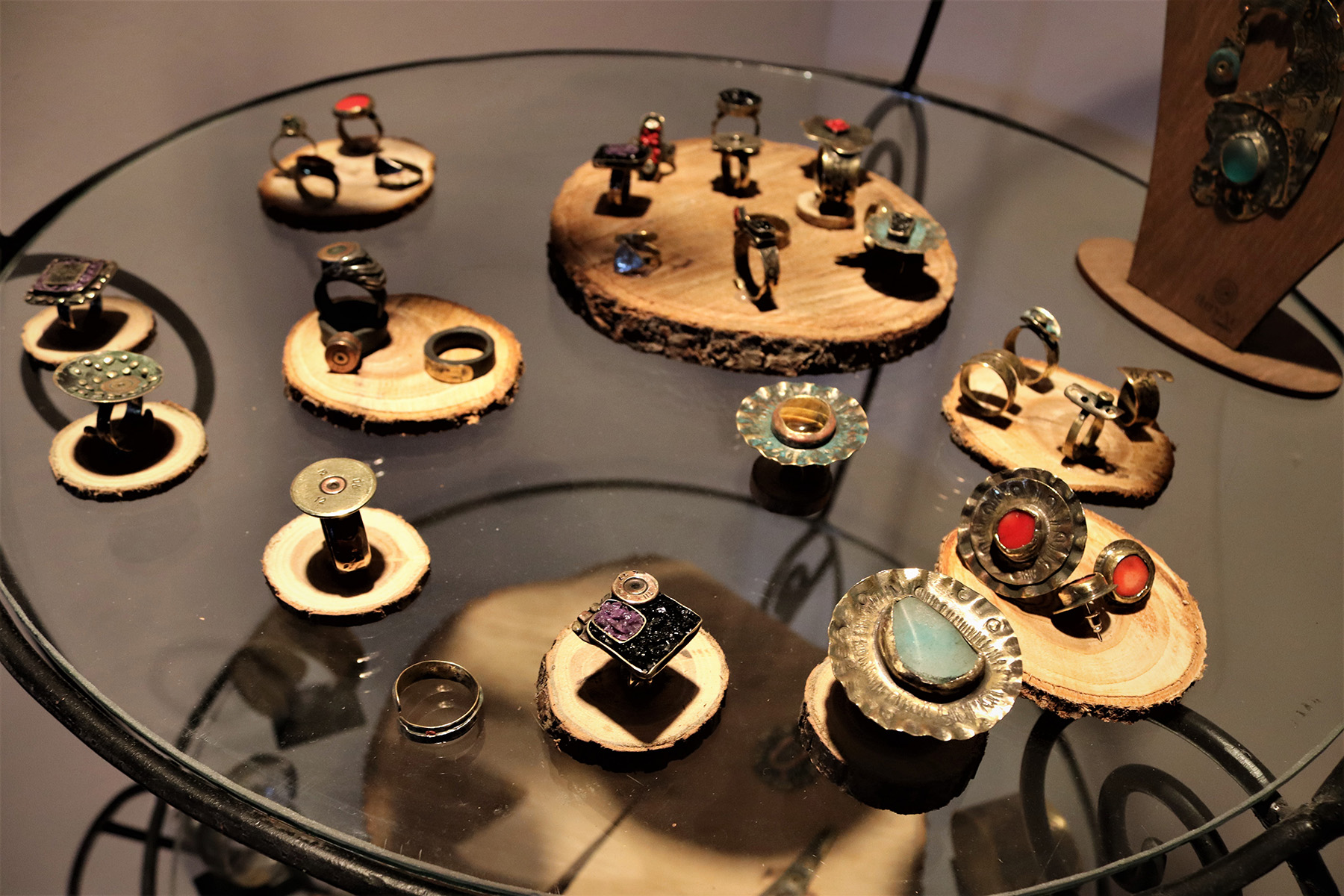
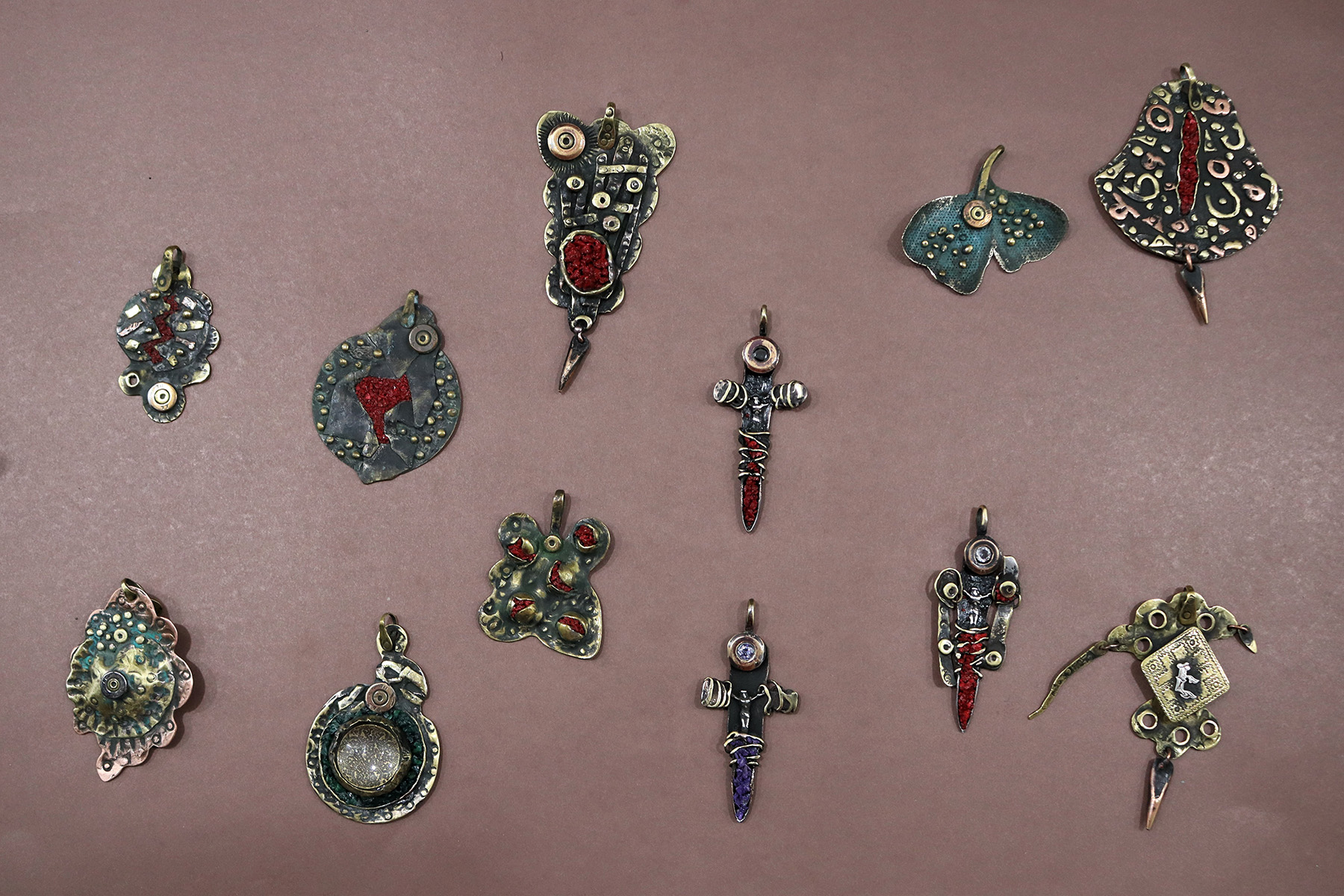
‘People wear our jewellery to weddings, someone gave his fiance [a ring] for their engagement. I would never have thought of this! In the summer, a woman ordered three pieces to present to her friends’ sons who had been drafted. Our products have participated in international exhibitions, representing the 30-year conflict between Armenia and Azerbaijan.’
‘I understand that I am a small person and cannot change anything, but I can influence within the limits of my capabilities. If you try, you can spread the call to peace — and I did so with my jewellery.’
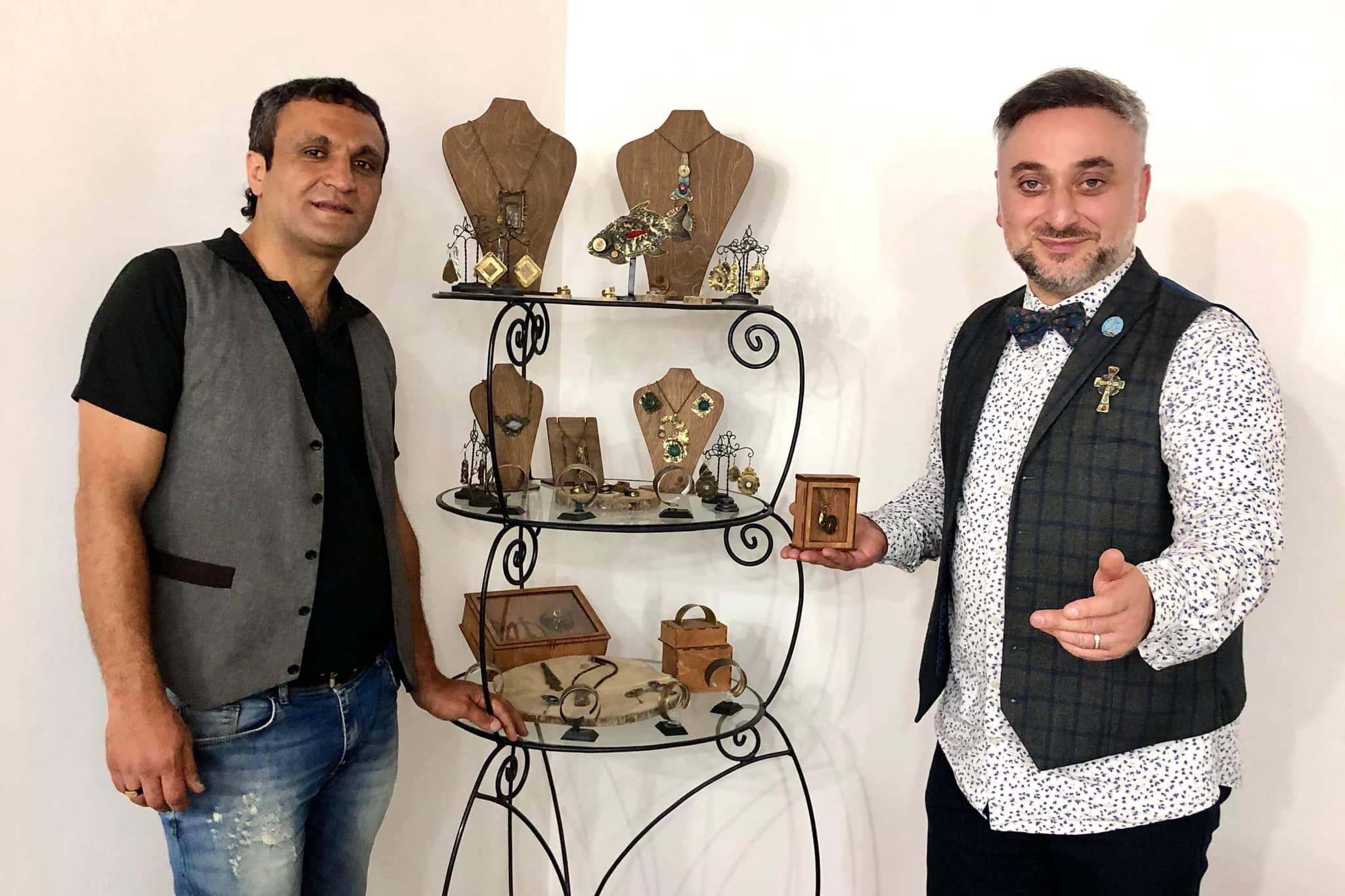
‘In nature, the lion can make others come to peace with one roar. This is not aggression, it is just that he is stronger and can put things in order. So I am for such a peace, even if it is uninvited.’
‘There are those who do not like our idea, because, in their opinion, weapons should shoot and bring victory, and they say the fact that we make jewellery out of weapons breaks the spirit of the soldiers and leads to defeatism.’
‘I do not despair’
‘When the war between Nagorno-Karabakh and Azerbaijan began, we helped [the victims] from the very first day.’
‘I gave all the money from the sale of 30 works to the Hayastan All-Armenian Fund — to buy food, clothing, and essential supplies for the soldiers. To everyone who donated more than ֏20,000 ($42) to the fund, I gave my “peace crosses”. Armenians and foreigners from different parts of the world transferred money to them in order to receive it.’
‘We also sent food [to Nagorno-Karabakh] and hosted families from Nagorno-Karabakh in our home. They came from near Martakert. We did everything we could so that they did not go without anything. We waited and prayed with them.’
‘After the war, they found out that their village was to be transferred [to Azerbaijan], then it was very difficult for them. Now they have returned to Artsakh, but their future is uncertain, they have no home, they are waiting.’
‘For the 44 days of the war, I was not been able to create a single piece of jewellery. The day an agreement to end the war was signed between Armenia and Azerbaijan, on 10 November, turned out to be a very difficult day for me — full of disappointment, fear, and a sense of danger.
‘Despair followed. It became very difficult to create, my thoughts were far from my work, orders remained unfinished.’
‘It was over a month before I returned to the workshop. After a long break, I started painting. The war made me transfer my state of mind to the canvas. Now I look at my pictures — some are full of hope, others, the anger and panic that I felt during the war.’
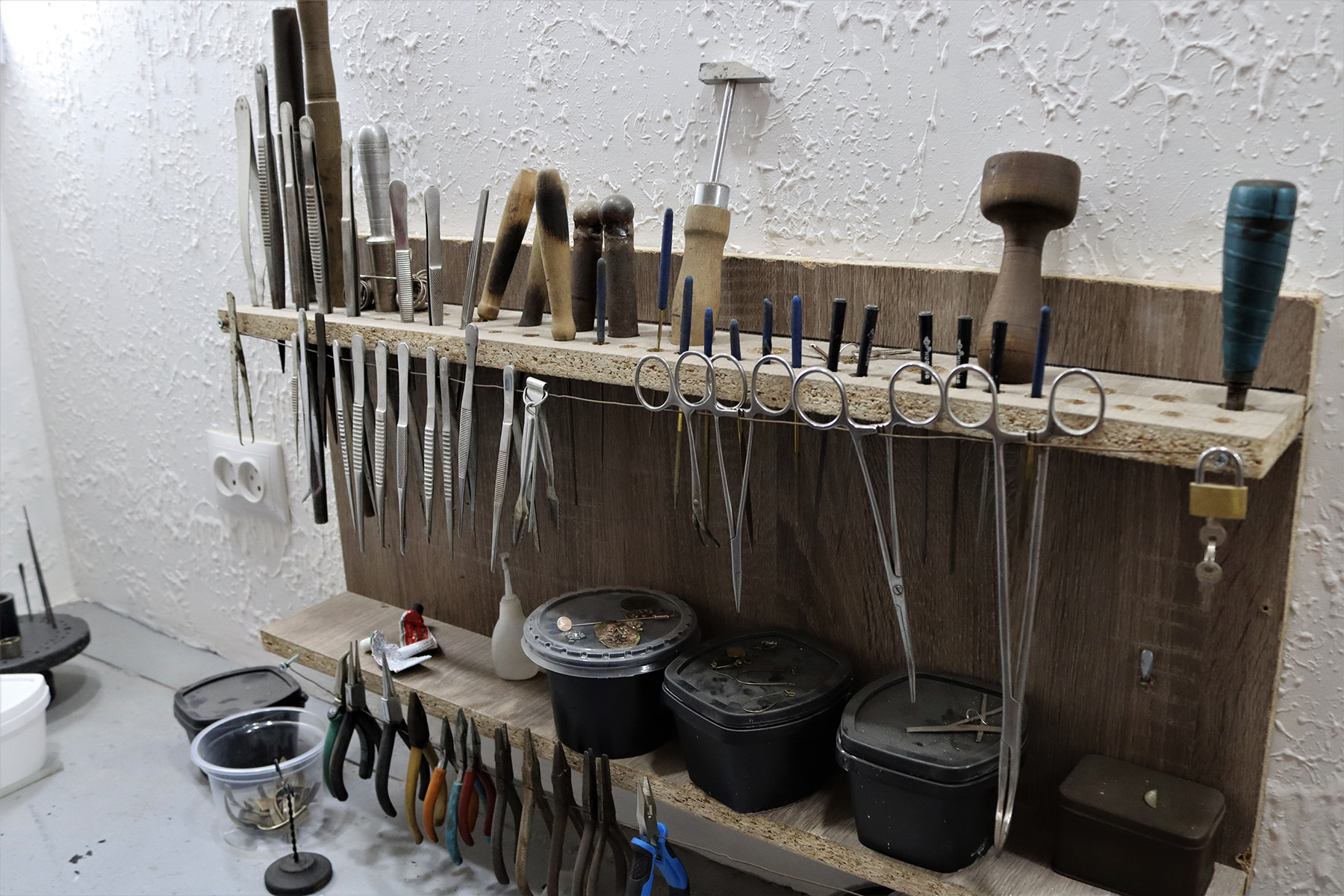
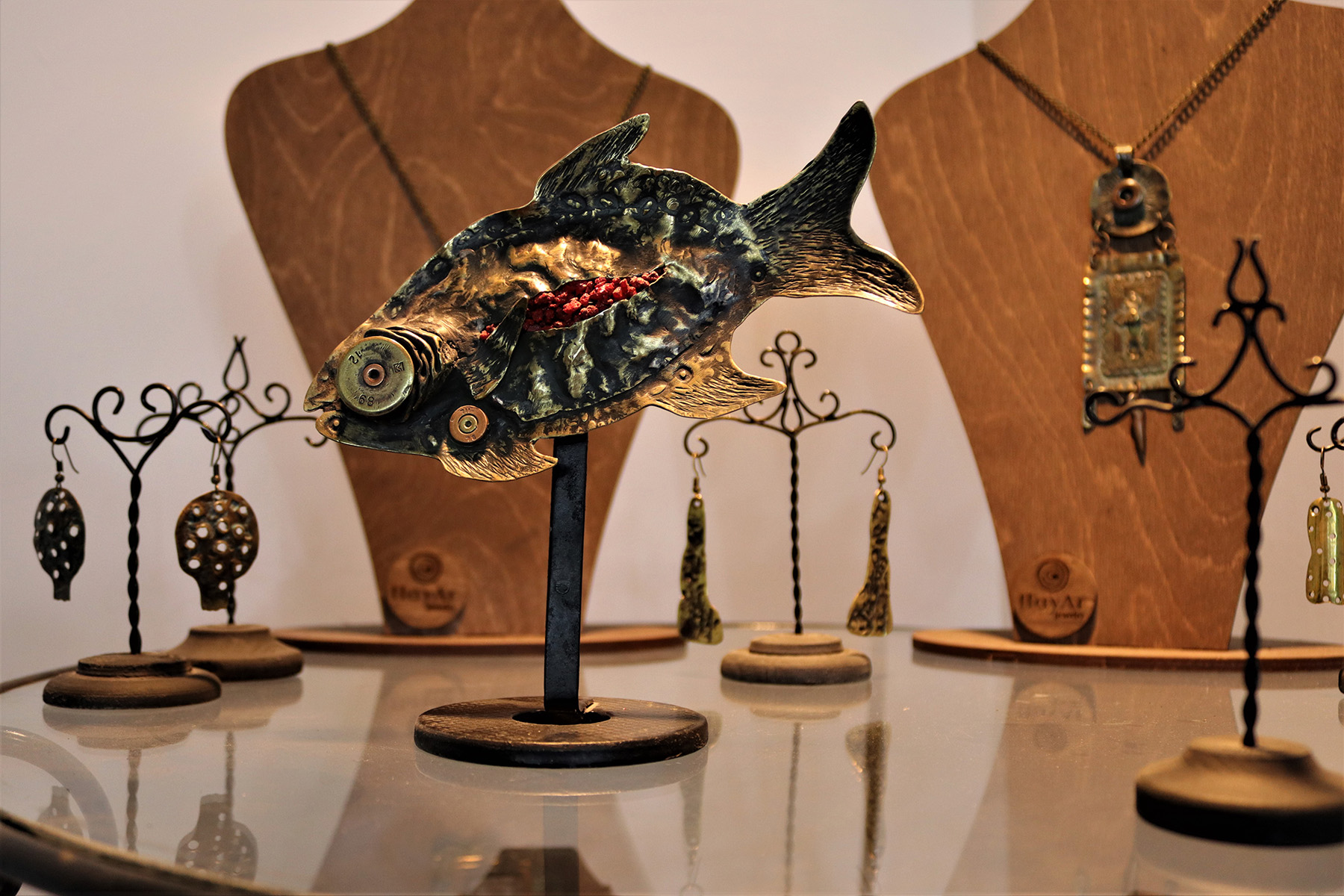
‘Visiting hospitals, I realised that the wounded men — with burns, amputated limbs — need attention, support, to gain inner and outer peace. I gave them my jewellery in gratitude for their defence of the Motherland. I hope they will help them find a peaceful path, overcome new life difficulties.’
‘I understand that this is a war, death is inevitable, there must be battles, but in 1915, many Armenians were also killed [during the Armenian Genocide]. ‘One can imagine that news reached them slowly back then, but this time, everyone knew and everyone was keeping their silence.’
‘I would like to ask if this seemingly humane contemporary world really supports reconciliation as I do or just pretends to do so?’
‘But I do not despair and continue to make my jewellery, calling for peace.’


